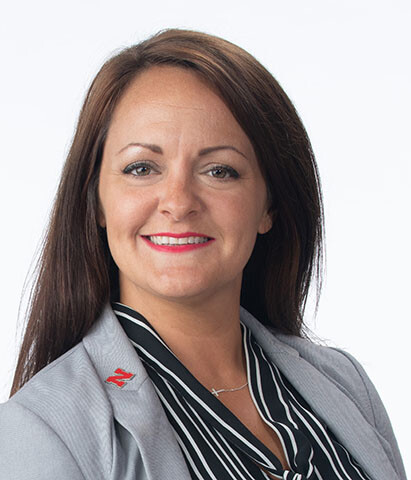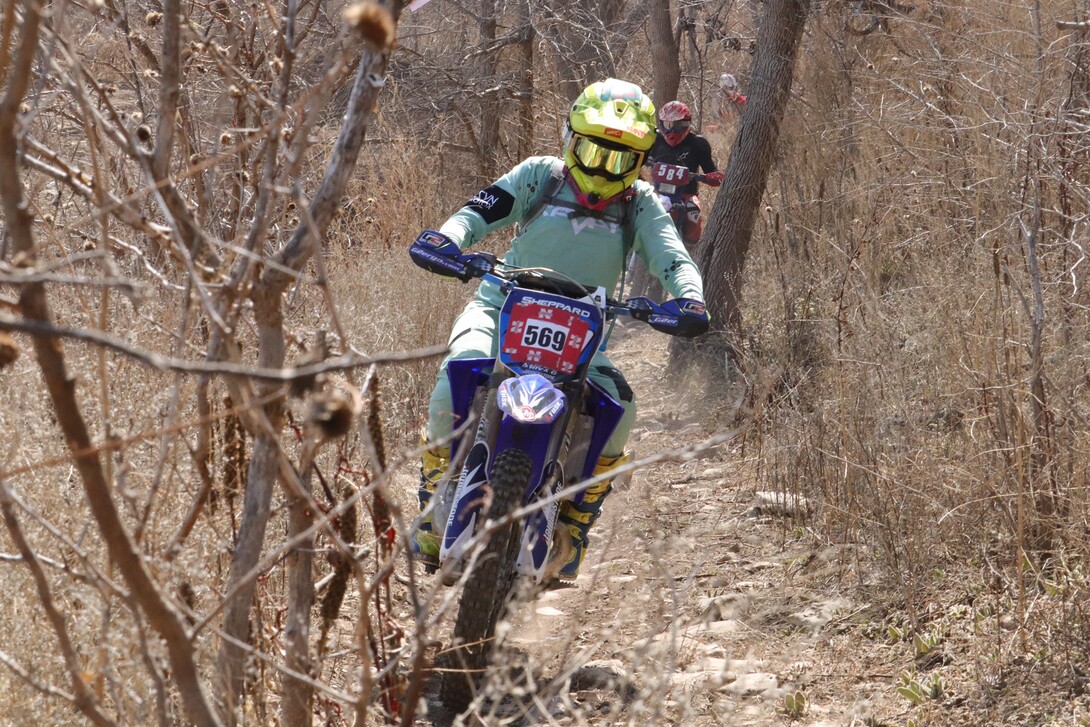
Jenn Sheppard feels most at home on two wheels and open trails.
As a sponsored off-road motorcycle athlete, she’s competed in countless races over the past three decades.
“It’s part of my identity,” Sheppard said. “If you took away my dirt bike, I wouldn’t know who I am.”
She’s equally as passionate about her role as assistant professor of practice in sports media and communication at the University of Nebraska–Lincoln, where she strives to bring lessons from the racetrack into the classroom.
“I really try to emphasize to my students how my experience racing translates into their experience as a student,” Sheppard said. “They have to prepare, they have to train and they have to do maintenance on their work. There’s such an intense focus required to succeed in sports media. You have to do things over and over again, and you can’t quit the race, even if you fall.”

Sheppard grew up in Florida and began riding dirt bikes at a young age. She took after her father, Lane, who is a competitive rider himself.
“At the age of four, much to my mother’s chagrin, my dad purchased a motorcycle for his daughter, and that was a match made in heaven,” Sheppard said, noting that now, her mom is one of her biggest supporters. “We spent the rest of my childhood traveling the state and up and down the East Coast and Southeast taking trips and just spending literally every weekend riding. I went from a three-wheeler to a two-wheeler and never looked back.”
Between ages 4 and 10, she developed foundational skills. And, by age 13, she started racing in the beginner class.
“Eventually, I won a championship in what we call enduro racing,” Sheppard said. “It’s more of an endurance race for four hours on the bike and over 60 miles. It was super hard and really tough, but that’s kind of where I found my niche.”
Being a woman in male-dominated sport didn’t hold Sheppard back.
“My dad never treated me like a girl. He never told me, ‘You can’t do that,” she said.
As a female rider, however, she was sometimes teased and felt like the odd one out.
“I wasn’t aware that I was a female until I was the only female,” Sheppard said.
She began putting pen to paper to document those experiences, and soon, the field of sports journalism began calling her name.
“I had diaries, I wrote a column for a magazine in high school, and I was always writing about my broken bones and the stories of being the only girl and getting picked on,” Sheppard said.
After college, Sheppard began working in public relations for a motorcycle productions company. The position was her dream job — but, much like the racetrack, life had some twists and turns in store.

Over the next several years, she went to graduate school and discovered her love for teaching. After serving as both a high school and college-level journalism instructor for five years, she moved across the country to Nebraska in 2019.
“My dad always said, ‘Go fast, take chances,’ and that’s kind of been my life — just take a risk and put yourself out there,” she said.
In Nebraska’s College of Journalism and Mass Communications, Sheppard is the only female sports professor. In her beginning sports writing courses, she enjoys being a role model for female students looking to break into the industry.
“A lot of young women don’t see women in positions like this, especially in Nebraska,” Sheppard said.
Her new job, and new home base, haven’t slowed her down. Each weekend, Sheppard stays busy traveling to competitions across the Midwest or training at a local track.
“It’s a lifestyle. Every day I wake up and I’m like, ‘How can I get faster today?’ — whether that’s running, yoga, strength training or CrossFit,” Sheppard said. “It’s definitely more than just, ‘Oh, let’s go riding every weekend and not think about it ever during the week.’ It’s very strenuous, and you have to be tough.”
On visits home, she returns to the roots where her story began: racing with her dad, who is still competing at the age of 70.







